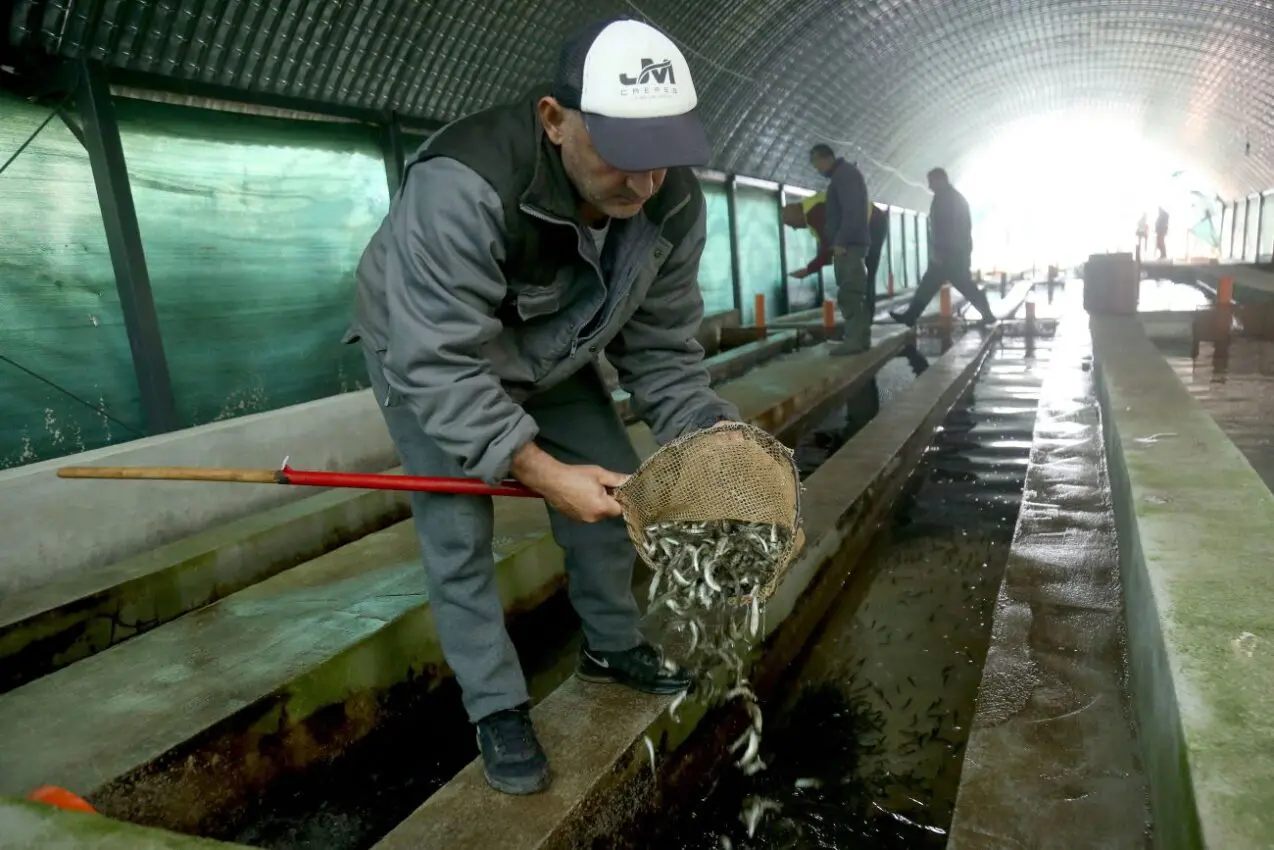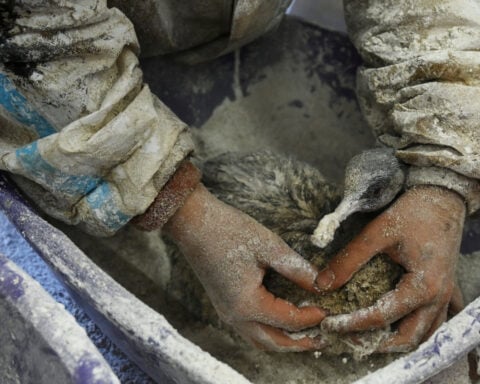A young man's evil act and reckless choice to pour harsh chemicals into a fish tank has left the community of Reedsport, Oregon, shaken to its core. The senseless Chinook salmon hatchery vandalism has led to the tragic deaths of 18,000 juvenile Chinook salmon, dealing a devastating blow to local endeavors to protect this iconic Pacific Northwest species.
Joshua Alexander Heckathorn, a 20-year-old residing in the nearby town of Gardiner, faces accusations of illegally entering the Winchester Bay Salmon Trout Enhancement Program (STEP) hatchery and purposefully emptying bleach into one of the rearing ponds, snuffing out thousands of pre-smolt Chinook on the cusp of their journey to ocean waters. This unconscionable act of poaching defenseless fish has sparked fury amongst locals and drawn scrutiny from wildlife officials statewide.
The STEP volunteer-run hatchery plays an essential role in fortifying Oregon's cherished Chinook stocks each year. The non-profit releases some 170,000 pre-smolts and smolts into Winchester Bay annually, hoping a small fraction survive hazardous ocean migration and eventually return as spawning adults, perpetuating the natural cycle.
However, the mass casualties of nearly 18,000 juvenile fish represent a quarter of the facility's pre-smolt population this season - a staggering loss. STEP president Deborah Yates voiced disbelief, asserting volunteers devoted innumerable hours nurturing the young salmon, only to have their efforts ruined by one shockingly careless act.
The Oregon hatchery fish senselessly killed were critical components of a meticulously managed program striving to ensure Chinook endure despite mounting pressures in recent decades. Habitat degradation, water contamination, dam construction, and overfishing have all contributed to dwindling wild populations, galvanizing urgent conservation measures across the region.
While prosecutors initially charged Heckathorn with burglary, trespassing, and criminal mischief, the repercussions may extend far beyond those counts. Oregon laws allow a maximum of $750 fines per poached Chinook, potentially totaling over $13 million for the 18,000 perished juveniles, though such a lofty penalty seems improbable.
Nonetheless, the incident has invigorated discussions around strengthening deterrents and more stringent punishments against those whose actions imperil protected species and undermine preservation initiatives.
The community backlash has been passionate, with an outpouring of monetary donations to enhance hatchery security and offers of assistance reflecting the deep symbolic value many Oregonians ascribe to their natural heritage. Sgt. A 25-year veteran game warden, Levi Harris, branded the act "one of the most senseless" he'd ever witnessed, underscoring its far-reaching impacts on ecosystems, economies, and cultural traditions statewide.
While the loss represents a setback, the resilience of STEP's volunteers and public allies shines through adversity. The facility still houses around 60,000 fish nearing release age, which will soon embark on their oceanic odyssey, continuing a cycle of life that has sustained Chinook for eons.
As the investigation unfolds, the community remains resolute in buttressing STEP's vital work and ensuring Chinook salmon populations rebound from this regrettable incident. Through educational outreach, ecological stewardship, and unified conservation ethics, they aim to prevent any future acts of careless sabotage from compromising the natural marvels defining Oregon's wild identity.

 Judge says woman accusing Jay-Z, Sean 'Diddy' Combs of raping her at age 13 can proceed anonymously
Judge says woman accusing Jay-Z, Sean 'Diddy' Combs of raping her at age 13 can proceed anonymously
 Bird flu virus shows mutations in first severe human case in US, CDC says
Bird flu virus shows mutations in first severe human case in US, CDC says
 Richard Parsons, American media and finance troubleshooter, dies at 76
Richard Parsons, American media and finance troubleshooter, dies at 76
 Interest rate path to determine if Aussie banks can sustain rich valuations in 2025
Interest rate path to determine if Aussie banks can sustain rich valuations in 2025
 South Korea's acting president faces impeachment vote as court meets on martial law case
South Korea's acting president faces impeachment vote as court meets on martial law case
 FDA proposes new testing rules to ensure cosmetics are asbestos-free
FDA proposes new testing rules to ensure cosmetics are asbestos-free
 Cowboys shutting down CeeDee Lamb with 2 games to go over receiver's shoulder issue
Cowboys shutting down CeeDee Lamb with 2 games to go over receiver's shoulder issue








